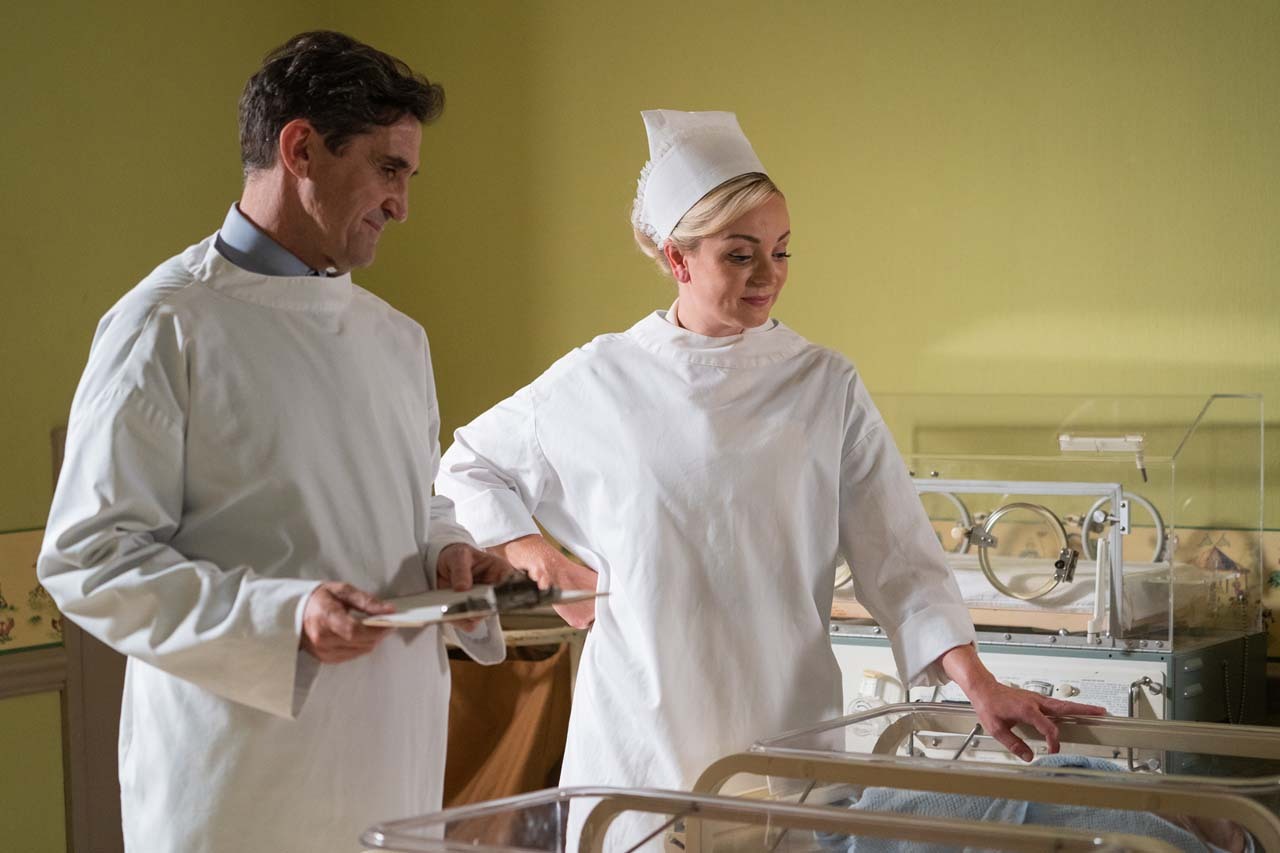
Since the coronavirus pandemic started ravaging the world, thinking about those early days of lockdown still makes me shudder. My goodness, if someone would have told me back then that three years later, I would still be wearing a mask at work, I probably would have cried. The absolute uncertainty of the time, the fear over all of the unknowns of this virus, and the horrible statistics, including high death rates, meant everyone was on high alert. Some health care workers did have to lock down in their facilities, sleeping on-site. Some didn’t feel safe going home to their families, worried they were going to bring the virus home. While the midwives this week didn’t have to deal with a respiratory virus, they did have something wickedly contagious running through the maternity home—viral gastroenteritis.
Most adults can recover easily from gastroenteritis, however when a newborn gets sick, it can be life or death. In fact, 700,000 children die each year from infectious diarrhea, with most of these children being less than 2 years old. At the first signs of gastroenteritis ravaging through the maternity home, Dr. Turner and the midwives knew they needed to quarantine everyone inside. They couldn’t risk passing this along to the other midwives, and therefore onto the community. They also didn’t want the mothers at the maternity home to take it home to their families. Finally, they needed to very carefully watch the newborns’ intake and output, to make sure they would not become dehydrated. They put their plan in place so quickly that they were really able to contain the virus, minimizing the spread in the community.
I’ve always been interested in public health. I previously worked in a public health setting as a home visiting nurse with Nurse-Family Partnership. I honestly felt a bit like the midwives of Nonnatus house during my year at that job, except I did have my car to get around! It’s such a different experience in nursing when we go into patients' homes. We were again thrust into the realm of public health during the coronavirus pandemic. The lack of support from the leaders of our government to adhere to basic public health guidelines caused a lot of illness and death that may have been avoided. While COVID-19 and infectious diarrhea are two totally different illnesses, it was wonderful to see how the staff at the Poplar maternity home quickly implemented safety measures and used their best evidence-based medicine to care for everyone.
One special moment from this week’s episode that stood out to me was when Trixie helped Vanita Khatri connect with her husband while she was quarantined in the maternity home and had him come to the maternity home to talk to her from the upstairs window. Trixie had been locked down in the maternity home as well, tired and uncomfortable from working long shifts. She was missing her friends, fiancé, and her own bed. However, she took the time to notice how much Vanita was struggling and found a way to help her contact her husband.
Nursing and midwifery can be such demanding jobs. From the long hours, the night shifts, and the stress, to the emotional investment we have with our patients and their families, this job is not for the faint of heart. I also know so many nurses and midwives that, like Trixie, go out of their way to provide such personalized care that is above and beyond what is required. We are with patients at some of the most vulnerable times in their lives, and we are often looking for any additional ways to help with their physical and/or emotional health. This week’s episode reminded me of one of the many reasons I am so proud to be a nurse midwife. Yes, we are experts in normal pregnancy and birth. We also listen to our patients, connect with them and their families on a personal level, and we try to address all of their needs—mind, body, and spirit. Yes, this job is hard, but no, I wouldn’t want to do anything else.